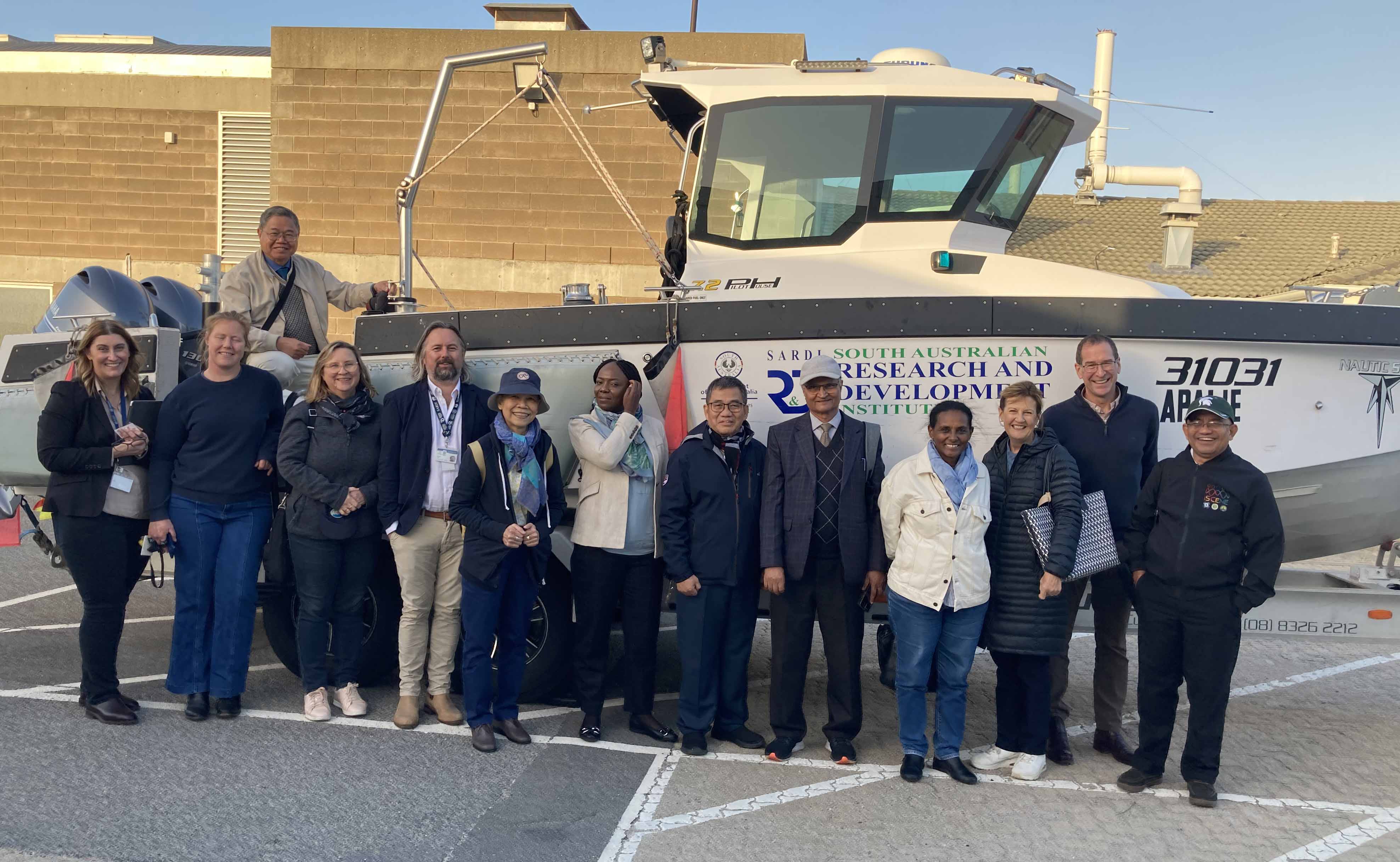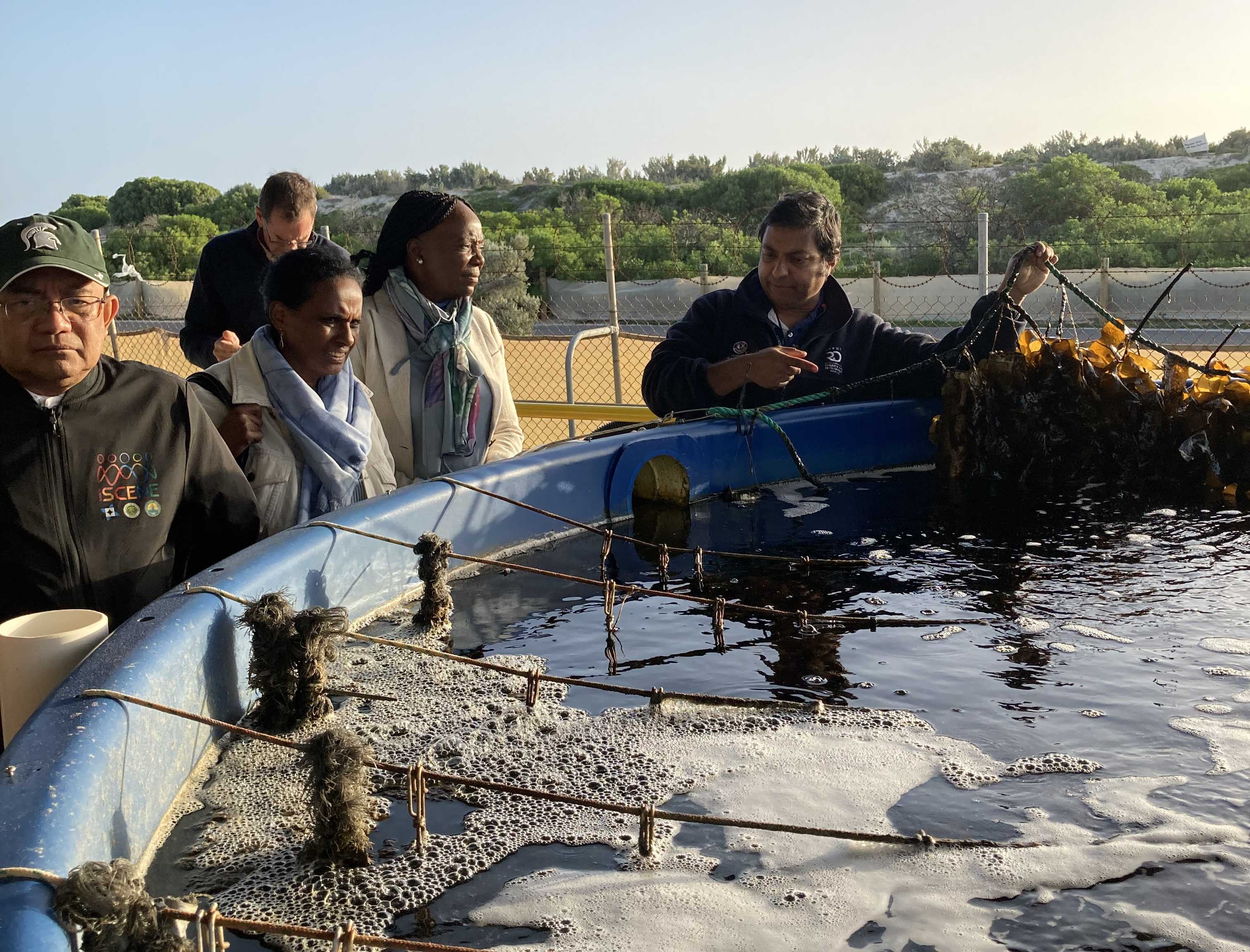A delegation of international agricultural leaders recently visited Australia to advise Australia's Minister for Foreign Affairs on how local agricultural expertise can benefit sustainable development throughout the Indo-Pacific region.
Australia's Policy Advisory Council (the Council) toured South Australia for its annual in-country meeting, visiting local researchers, policymakers, farmers and technical experts to discuss how Australian agricultural knowledge could further strengthen food and nutrition security and boost farming livelihoods in developing countries.
Featuring 11 leading agricultural experts from Australia, Fiji, India, Indonesia, Kenya, Papua New Guinea, the Philippines, Singapore, South Africa, Thailand and Vietnam, the Council provides advice to Senator Wong, Minister for Foreign Affairs, on agricultural development issues, with a focus on identifying how research partnerships can assist developing countries in tackle emerging challenges.
The president of the Council, Dr Nick Austin, said that the worsening impacts of climate change are a common threat to rural farming communities around the world, but will affect low-income countries particularly hard.
'Smallholder farmers are central to achieving the objective of Australia's International Development Policy: a peaceful, stable and prosperous Indo-Pacific region. These small-scale producers-involved in farming, fishing, livestock, forestry-are disproportionately impacted by climate change,' said Dr Austin.
'The Council discussed ways that Australia's strengths in agriculture can be best harnessed to reduce the vulnerability of low-income farmers across the Indo-Pacific. We had very constructive conversations with senior Australian Government staff, who welcomed the Council's advice on reinvigorating international strategies and ACIAR's regional and country plans.'
Dr Austin added that Australia is fortunate to have the support of the Council.
'The PAC brings together an incredible breadth and depth of knowledge about agricultural development and the role it plays in improving the lives of the millions of small-scale producers around the world. Members are generous with their expertise to help make Australia's development program more effective.'

The Council met with Australia's Minister for Foreign Affairs, Senator Penny Wong, in Adelaide and discussed how Australia's International Development Policy and comparative advantage in helping partner countries address climate change challenges will further strengthen regional food systems.
Council member from Vietnam, Dr Nguyen Van Bo, highlighted the unique value the Council brings to both Australia and its partner countries.
'The Council's greatest strength lies in its independent and experienced experts from various countries, free from organisational pressures, which enables them to provide objective advice to ACIAR, the Australian Government, as well as to their respective countries on key priorities,' said Dr Bo.
'Being a Council member offers several advantages, including being updated on Australia's policies, visiting research facilities to explore new technologies and directions, and fostering mutual learning among scientific managers from different nations. These exchanges also create valuable opportunities for collaboration.'
Dr Bo emphasised Australia's notable achievements in agriculture and its potential to support Indo-Pacific countries through shared knowledge and collaboration.
'Australia's achievements in agriculture are diverse and impactful. Australia's experience in water management, particularly due to frequent droughts, makes its expertise in efficient irrigation highly valuable for nations looking to adapt to climate change,' said Dr Bo.
During their time in South Australia, the Council visited The South Australian Aquatic Sciences Centre, a division of South Australian Research and Development Institute, to discuss the sustainable management of marine resources and initiatives including seaweed aquaculture.

Council members also met with researchers at the University of Adelaide's Waite Research Institute and Roseworthy Campus to discuss plant and animal research, dryland agriculture and natural resource management as well as meeting the CEO of the End Food Waste initiative Dr. Steven Lapidge and the SA Drought Hub.
'As an island nation with a developed maritime economy, Australia is well-positioned to share its experiences in this sector,' said Dr Bo.
'Additionally, the country's advanced technology for preserving and processing agricultural products presents an opportunity for collaboration and support to improve food security across the region.'
Dr Bo also commended the Australian Government's End Food Waste program, which he said offers an important foundation for Vietnam's future research into food waste.
The Policy Advisory Council (the Council) consists of 11 members from across the Indo-Pacific. The Council gives a valuable insight into the agricultural issues of developing countries and how Australia's expertise in agricultural research can contribute to these issues through research collaborations. The Council also assists the Australian Centre for International Agricultural Research in the planning and implementation of its research portfolio to improve food security and reduce poverty throughout our region. Meet the Council members.






